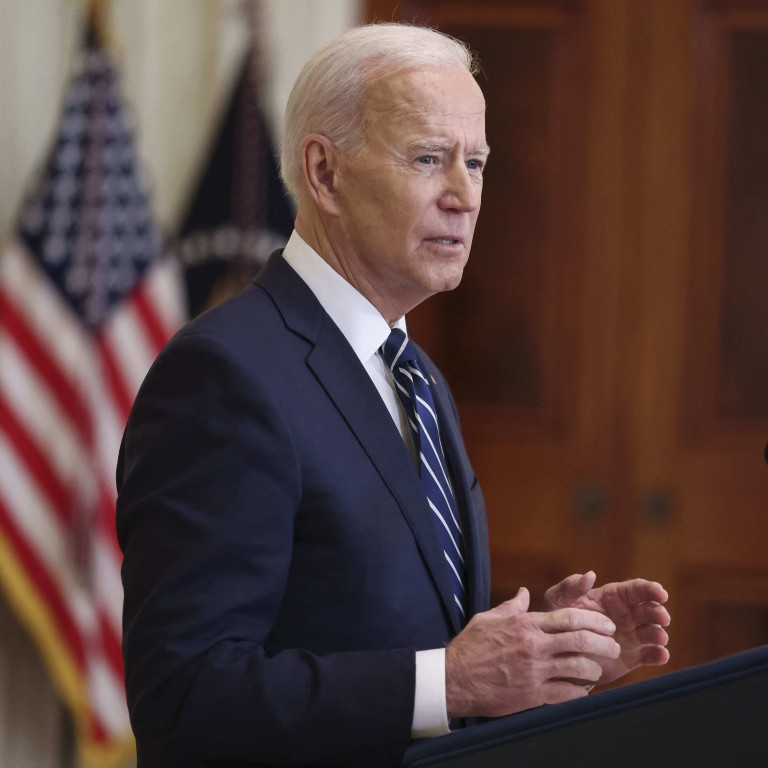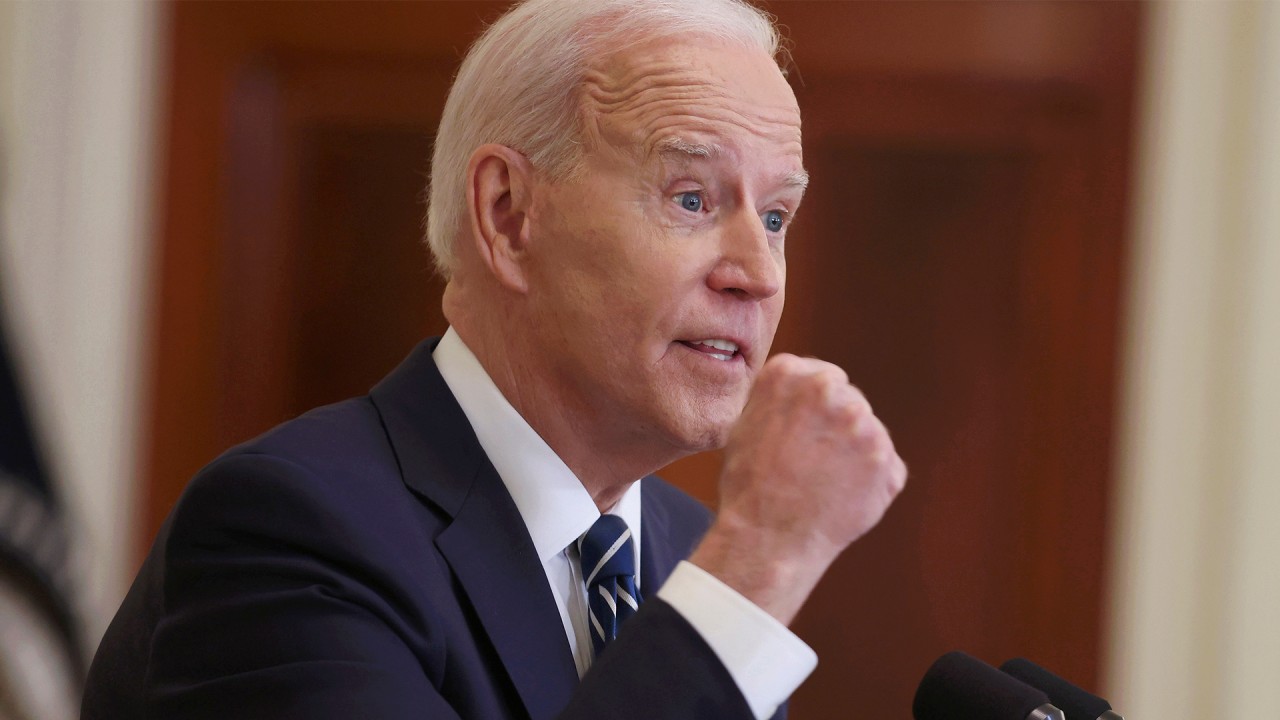
Biden pledges to prevent China from becoming the world’s ‘leading’ country
- ‘I see stiff competition with China,’ Biden says
- Biden reiterates plan to convene a democracy summit
Casting America’s competition with Beijing as the most important front in a generational struggle between democracy and autocracy, Biden reiterated a plan to convene a democracy summit and more than double the amount of investment in science and technology as a percentage of GDP.
“I see stiff competition with China,” Biden said in his first press conference as president. “China has an overall goal, and I don’t criticise them for the goal, but they have an overall goal to become the leading country in the world, the wealthiest country in the world and the most powerful country in the world. That’s not going to happen on my watch, because United States is going to continue to grow and expand.”
Biden lamented that US investment in “pure research and investment in science” had dropped to 0.7 per cent of the country’s GDP, down from “a little over 2 per cent” in the 1960s.
“The future lies in who can, in fact, own the future as it relates to technology, quantum computing, a whole range of things, including the medical field,” he said, pledging to ensure that investment in areas including medical research, artificial intelligence and quantum computing adds up to “closer to 2 per cent”.
“China is racing to develop semiconductors and other core technologies so as to reduce its vulnerability to supply chains that pass through the United States,” Adam Segal, director of the digital and cyberspace policy programme at New York-based think tank Council on Foreign Relations, said in a September 2020 edition of Foreign Affairs.
As Xinjiang cotton row rages, European firms ‘caught between rock and hard place’
While Trump’s secretary of state Mike Pompeo frequently denounced the Chinese government’s treatment of Uygurs and opposition activists in Hong Kong, and placed sanctions on dozens of officials in response, the former president rarely voiced the same criticism.
Biden also touched on the gap between spending on infrastructure in the US and China, asserting that Beijing spends three times more on transport and other public facilities. He said one in five miles of America’s highways are in poor condition, lead pipes servicing water lines must be swapped out, asbestos in public schools constitute a drag on the country’s economic growth and public health.
That message was also delivered in Congress on Thursday, when US Transportation Secretary Pete Buttigieg testified before the House Committee on Transportation and Infrastructure.
“By some measures, China spends more on infrastructure every year than the US and Europe combined,” Buttigieg said. “The infrastructure status quo is a threat to our collective future. We face an imperative to create resilient infrastructure and confront inequities that have devastated communities.”
“He’s one of the guys like [Russian President Vladimir] Putin, who thinks that autocracy is the wave of the future [and that] democracy can’t function in an ever complex world,” he said.
“We’re not looking for confrontation, although we know there will be steep, steep competition,” he added. “This is a battle between the utility of democracies in the 21st century, and autocracies.”
North Korea missile tests ‘aimed at US-South Korea defence ties’
Biden also addressed on Thursday North Korea’s apparent firing of two short-range missiles, the country’s first missile test since he took office in January, characterising the move as a violation of United Nations sanctions.
“We’re consulting with our allies and partners, and there will be responses if [the North Koreans] choose to escalate. We will respond accordingly,” Biden said.
“But I’m also prepared for some form of diplomacy, but it has to be conditioned upon the end result of denuclearisation.”



